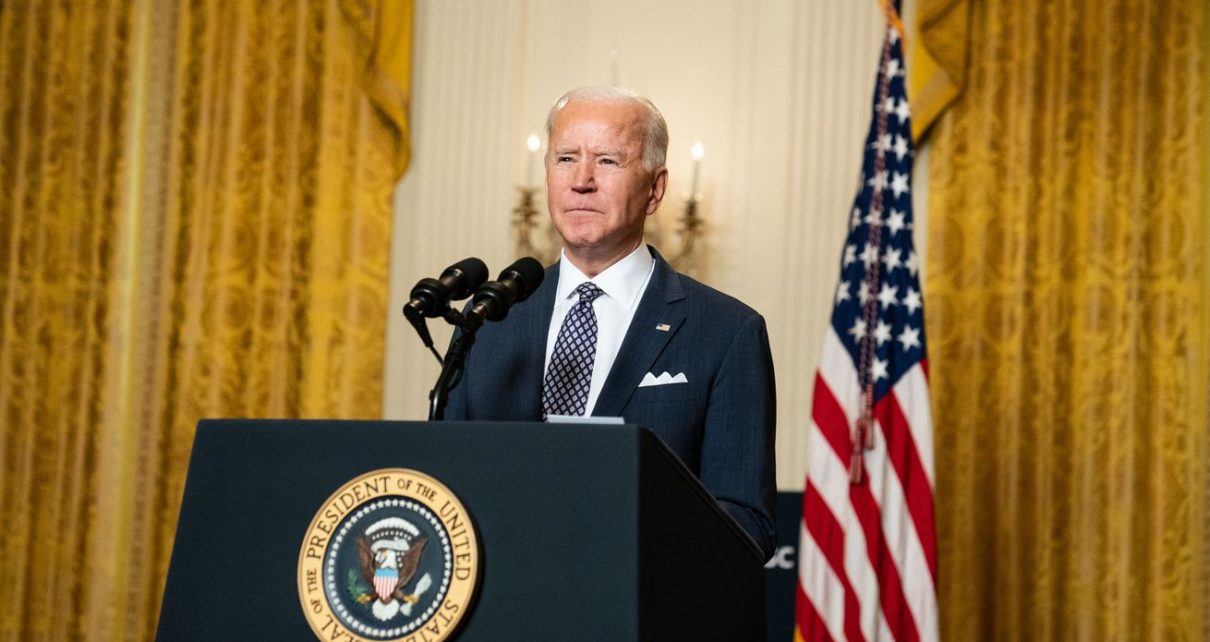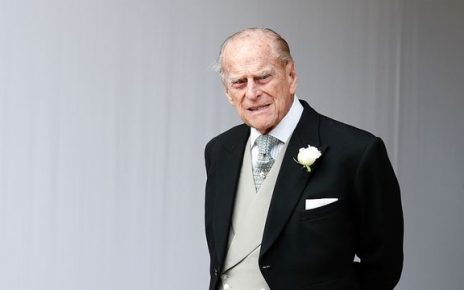
Even US officials say the offer for negotiations isn’t a “breakthrough.”
The Biden administration on Thursday took its first real step toward restarting diplomatic efforts to reenter the Iran nuclear deal. But US officials caution that this isn’t a “breakthrough” that will imminently lead America back into the accord it left nearly three years ago.
President Joe Biden’s team has offered a consistent line since coming into office a month ago: For the US to rejoin the agreement, Iran needs to first come back into compliance with the pact’s limitations on its nuclear development.
Simply put, Tehran would have to reduce its levels of uranium enrichment to the limits specified in the Iran deal before America would lift any sanctions on the country. That was a stance Biden reiterated during a pre-Super Bowl interview with CBS News’s Norah O’Donnell.
But on Thursday, that position softened — though only a little bit.
First, the Biden administration formally rescinded a failed effort by former President Donald Trump to reimpose United Nations sanctions on Iran. Then it eased restrictions on domestic travel for Iranian officials working at the UN. And then, after a senior European Union diplomat suggested he host an “informal meeting” with Washington, Tehran, and the other signatories to the nuclear pact, the US said it’d be willing to join.
“The United States would accept an invitation from the European Union High Representative to attend a meeting … to discuss a diplomatic way forward on Iran’s nuclear program,” State Department spokesperson Ned Price said in a statement.
Lest anyone get too excited, senior State Department officials soon after told reporters in a briefing that the Biden administration just agreed to talk, nothing more.
“We recognize that this is just a very first initial step to say that we are prepared to attend the meeting that would be convened by the EU,” said one of the officials, who, like the other in the briefing, spoke on background per the State Department’s ground rules. “We recognize that that’s not in and of itself a breakthrough. Even the first meeting itself may not be a breakthrough. So we’re not going to hype it for what it isn’t, but it is a step.” Importantly, that same official also said it’s unclear if Iran will even agree to a meeting.
Still, on Friday Biden reiterated his administration’s new position, telling the Munich Security Conference that “we’re prepared to reengage in negotiations with the P5+1 on Iran’s nuclear program.” The P5+1 refers to all the signatories of the 2015 accord.
Which means this move should be seen as little more than an opening gambit — but still one that matters, given that the US and Iran have been stuck in a stalemate on nuclear negotiations with neither wanting to move first.
Interestingly, it seems the Biden administration may have helped orchestrate this opening gambit, despite it seemingly having come spontaneously from the Europeans. A person familiar with the administration’s thinking said the EU’s offer and America’s acceptance was “definitely a coordinated effort.”
After the administration concluded its Iran policy review earlier this month, in which US officials debated the merits of reentering the original nuclear pact at all versus trying to negotiate a new, stronger deal, Biden’s team chose to move forward with finding a way back into the deal.
But the US didn’t want to look like it was moving first and caving to Iran. Agreeing to an informal conversation, in which Washington and Tehran can sit down and hash out how and when uranium enrichment will ebb and sanctions will lift, helps solve that problem.
There’s still a long way to go, though. “Getting to the table is the easier part,” said Henry Rome, an expert on Iran at the Eurasia Group, a consultancy firm. “I think the two sides will get to ‘yes,’ but it’ll be more complicated — and time-consuming — than it may appear.”
“You don’t negotiate with people trying to kill you”
One reason it’s complicated is that Iran has so far shown no willingness to participate in an EU-brokered chat.
Only once the US “unconditionally” lifts “all sanctions imposed, re-imposed or re-labeled by Trump” will Iran “then immediately reverse” the advancements it has made since the US left the deal in 2018, Foreign Minister Mohammad Javad Zarif tweeted on Thursday. “Simple.”
/cdn.vox-cdn.com/uploads/chorus_asset/file/22315424/868691436.jpg) TASS via Getty Images
TASS via Getty ImagesIranian state media also quoted Mohammadali Ale-Hashem, the Friday prayer leader in the city of Tabriz, saying the Biden administration’s move was “a defeat for America.”
That has some experts worried the US might have made a mistake. “It’s telling that Iranians are already calling the moves a ‘defeat for America,’” said Gabriel Noronha, who worked on Iran in the State Department from 2019 until this year.
Biden’s team has “unilaterally rolled back important sanctions and restrictions just hoping it will result in talks,” Noronha said. “If this is how we’re going to negotiate with Iran, they are going to eat our lunch.”
It doesn’t help that on Monday in Iraq, rockets suspected to have been launched by an Iranian-backed militia killed a non-American civilian contractor at a military base in Erbil. Nine others were injured, including four US contractors and one service member, according to Col. Wayne Marotto, the spokesperson for the US-led coalition against ISIS.
The violence has led some Middle East experts to say now’s not the right time for the US and Iran to engage in diplomacy. “You don’t negotiate with people who are nudge, nudge, wink, wink, trying to kill you at the same time,” Michael Knights, a fellow at the Washington Institute for Near East Policy, told the Washington Post’s Josh Rogin on Thursday.
Israeli Prime Minister Benjamin Netanyahu is also unhappy with this development. A statement from his office on Friday said his government’s longtime stance against the Iran deal “has not changed,” adding, “Israel believes that going back to the old agreement will pave Iran’s path to a nuclear arsenal.”
But the Eurasia Group’s Rome told me the Biden administration likely believes the only way to make progress on the nuclear standoff is with diplomacy, regardless of how unsavory some may deem that to be.
“The start of negotiations represents the end of the beginning, not the beginning of the end,” he said.





